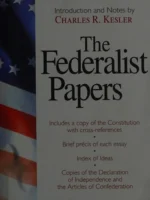Leviathan, Thomas Hobbes, 1651
- Author: Thomas Hobbes
- Genre: Politics
- Publisher: Oxford University Press
- Publication Year: 1651
- Pages: 544
- Format: Paperback
- Language: English
- ISBN: 978-0486424620
- Rating: 4,0 ★★★★☆
Leviathan Review
Leviathan by Thomas Hobbes is a foundational work of political philosophy written out of civil war and fear of chaos. Published in 1651, it argues that life without a common power collapses into competition and mistrust. For you, this book offers a cold but coherent vision: peace requires a pact and a referee strong enough to enforce it. It is blunt about human nature and methodical about the state we build to survive one another.
Overview
Hobbes begins with a mechanical account of the mind: desire and aversion, motion and will. From there he derives the state of nature: a world of equal vulnerability and constant risk. The solution is the social contract: individuals author a sovereign to keep promises and punish violence. The style is plain and forceful, with metaphors that still land: the commonwealth as an artificial person, the sovereign as its soul.
Summary
Part one explains human psychology and the causes of conflict: competition for gain, diffidence for safety, glory for reputation. Part two constructs the commonwealth: how it is formed, what powers it needs, and why division of authority invites war. Later parts address religion and civil law: belief is private, obedience is public, and peace is the highest political good. The closing message is not comfort but clarity: trade some freedom for security or risk losing both.
Author
Thomas Hobbes writes like an engineer of society. He prefers definition to ornament and consequence to wishful thinking. You benefit from his refusal to hide the costs of order or the dangers of anarchy.
Key Themes
You will explore the social contract as a mutual escape from fear, sovereignty as a necessary concentration of power, law as the visible will of the commonwealth, religion as potential rival to civil peace, and liberty as freedom from chains within rules that prevent worse chains.
Strengths and Weaknesses
Strengths: logical build, memorable images, and lasting influence on political thought. Weaknesses: pessimism about human cooperation, thin space for dissent and rights, and a comfort with authority that many readers resist. Overall: essential reading for understanding why order can be both promise and threat.
Target Audience
This book suits students of politics, law, and philosophy, and any reader curious about why states claim the powers they do. It works well for debates about security, liberty, and the limits of obedience.
Favorite Quotes
Short lines linger: covenants without the sword are words, fear makes equals, peace needs power. They frame the whole argument in a few beats.
Takeaways
For you, the key takeaway is that stability is engineered, not assumed. When rules fail, fear rules. The question after Hobbes is not whether to have authority but how to shape and restrain it so that peace does not cost more than it saves.
| pa_author | Thomas Hobbes |
|---|---|
| ISBN | 978-1-691-52391-3 |
| pa_year | 2001 |
| Pages | 571 |
| Language | English |






